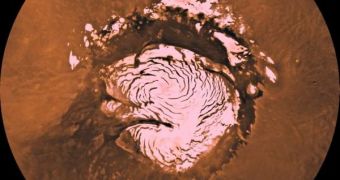After recent scientific studies demonstrated that several species of bacteria can endure in the harsh conditions of outer space for prolonged periods of time, space engineers have begun wondering on how to prevent cross-contamination in space exploration. Given the large number of mission destined for Mars that will search for signs of past life there, resolving the issues related to the possibility of cross-contamination between indigenous life forms and Earth-based microorganisms becomes of the utmost importance. New sterilization mechanisms need to be devised, and fast, scientists say.
Even if a trip to the Red Planet lasts several months at least, some species of Earth bacteria may be able to endure on the outer hull of the spacecraft. Once that particular mission reaches its destination and lands, the microorganisms could easily contaminate the Martian landscape with alien lifeforms. Scenarios related to these possible events are published in the April issue of the esteemed scientific journal Applied and Environmental Microbiology, PhysOrg reports.
The new paper is very important to the Mars Exploration Program and the Astrobiology Institutes, both NASA initiatives centered on finding life, or signs of past life, on the Red Planet. At this point, machines departing for our neighboring planet are subjected to thorough and careful decontamination procedures, which are meant to ensure that the smallest amount possible of microorganisms make their way to space, and then to Mars. However, the clean-up mechanisms are not perfect, and several kinds of microbial populations endure on the outer hull of spacecrafts, experts say.
“If long-term microbial survival is possible on Mars, then past and future explorations of Mars may provide the microbial inoculum for seeding Mars with terrestrial life. Thus, a diversity of microbial species should be studied to characterize their potential for long term survival on Mars,” say investigators from the University of Central Florida. The team here emulated Martian conditions in a test laboratory, and determined that certain bacteria, such as Escherichia coli, could survive on the planet, even though it would still have some problems multiplying.

 14 DAY TRIAL //
14 DAY TRIAL //